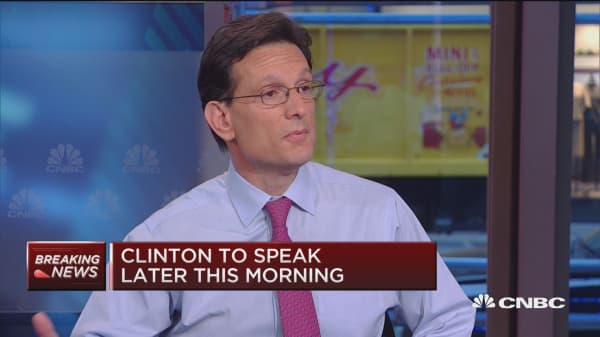The cheering has died down and the long, divisive, emotionally exhausting campaign is over. Now, attention turns to President-elect Donald Trump's agenda.
American voters across the political spectrum, along with wary observers around the world, are asking: What will the new Trump administration set at the top of its list? And what will it accomplish?
The president-elect's first task will be to try to find a wider base of support for the "movement" that he credits with sweeping him into the White House.
"To all Republicans and Democrats and independents across this nation, I say it is time for us to come together as one united people," he told a cheering crowd in New York early Wednesday morning. "It is time. I pledge to every citizen of our land that I will be president for all of Americans, and this is so important to me."
Unifying a deeply divided electorate will be a tall order, but it won't be a prerequisite for the new president to begin the political revolution he promised his supporters.
Throughout the campaign, Trump boldly promised a laundry list of accomplishments in his first 100 days that would rival the full-term achievements of any modern president. He has promised to:
- Appoint judges "who will uphold the Constitution" and "defend the Second Amendment."
- Build a wall on the southern border and restrict immigration "to give unemployed Americans an opportunity to fill good-paying jobs."
- "Stand up to countries that cheat on trade, of which there are many" and crack down on companies "that send jobs overseas."
- "Repeal and replace job-killing Obamacare — it is a disaster."
- Lift federal restrictions on energy production.




